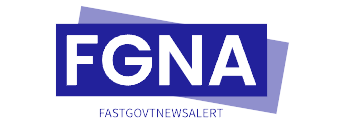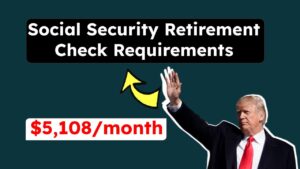
Are you looking for ways to boost your finances and take control of your financial future? Whether you’re a young professional just starting out, a parent planning for your child’s education, or someone preparing for retirement, the journey to financial wellness begins with small, consistent actions. In this article, we’ll explore practical tips that are easy to implement yet incredibly impactful. By following these strategies, you can build wealth, reduce stress, and achieve your financial goals.
Boost Your Finances with These Simple Yet Powerful Tips
| Topic | Key Insight | Data/Stat | Actionable Tip |
|---|---|---|---|
| Emergency Fund | Having 3-6 months’ worth of expenses saved can protect you from unexpected setbacks. | 58% of Americans have less than $1,000 in savings. | Start small by saving $500, then gradually increase your goal. |
| Budgeting | A budget helps you track spending and allocate resources effectively. | Only 41% of people use a budget regularly. | Use apps like Mint or YNAB to automate your budgeting process. |
| Investing Early | Compound interest can multiply your savings over time. | Starting at age 25 vs. 35 could mean $1M+ difference by retirement (NerdWallet Study). | Open a Roth IRA or index fund today—even $50/month counts! |
| Debt Management | High-interest debt can derail financial progress; prioritize paying it off. | Average credit card debt per household is $6,000+ (Experian Report). | Focus on the “debt snowball” method: pay smallest debts first to build momentum. |
Boosting your finances doesn’t require complicated strategies or massive sacrifices. By focusing on foundational principles like saving, budgeting, investing, and reducing debt, you can transform your financial future. Remember, consistency is key—small actions taken daily lead to big results over time.
Why Financial Health Matters
Imagine your finances as the foundation of a house. If the foundation is weak, everything else—your dreams, goals, and plans—can crumble under pressure. That’s why building strong financial habits early is critical. For example, think of saving money like planting seeds. The earlier you plant them (save), the more they grow over time thanks to compound interest.
But don’t worry if you’re starting late! It’s never too late to improve your financial situation. With discipline and smart strategies, anyone can turn their finances around.
Read Also: Secure Your Future with Expert Securities Finance Solutions in the USA
Step 1: Build an Emergency Fund
One of the most overlooked yet vital steps in boosting your finances is creating an emergency fund. This safety net ensures you’re prepared for unexpected events like medical bills, car repairs, or job loss.
Why Is It Important?
Without an emergency fund, many people resort to high-interest credit cards or loans during tough times, which only digs them deeper into debt. According to a Federal Reserve study, nearly 40% of Americans couldn’t cover a $400 emergency expense without borrowing money or selling something [Federal Reserve].
How to Get Started
- Set a Goal: Aim for $500 initially, then work toward 3-6 months’ worth of living expenses.
- Automate Savings: Set up automatic transfers to a separate savings account each payday.
- Cut Unnecessary Expenses: Redirect funds from non-essential spending (like dining out) into your emergency fund.
Step 2: Create and Stick to a Budget
A budget is like a roadmap for your money. Without one, you might end up overspending or losing track of where your hard-earned cash goes. Here’s how to create a simple but effective budget:
The 50/30/20 Rule
- 50% Needs: Allocate half of your income to essentials like housing, food, and utilities.
- 30% Wants: Spend no more than 30% on discretionary items like entertainment and hobbies.
- 20% Savings/Debt: Dedicate 20% to savings, investments, or paying off debt.
Tools to Help You Succeed
- Apps: Try Mint, YNAB (You Need A Budget), or PocketGuard to simplify tracking.
- Spreadsheets: For those who prefer manual methods, Excel templates are widely available online.
By sticking to a budget, you’ll gain clarity and confidence in managing your finances. Plus, you’ll avoid the stress of wondering where all your money went at the end of the month.
Step 3: Invest Early and Wisely
If there’s one piece of advice I’d give to everyone, it’s this: start investing now. Thanks to compound interest, even small contributions can grow significantly over time.
What Is Compound Interest?
Compound interest means earning interest not just on your initial investment but also on the accumulated interest from previous periods. Think of it as a snowball rolling downhill—it gets bigger and faster as it rolls.
Example:
Let’s say you invest $200 per month starting at age 25. Assuming a 7% annual return, by age 65, you’d have over $500,000! But if you wait until age 35 to start, you’d only accumulate around $250,000—a staggering difference.
Where to Begin
- Roth IRA: Ideal for retirement savings because withdrawals are tax-free.
- Index Funds: Low-cost, diversified options perfect for beginners.
- Employer Match: If your company offers a 401(k) match, contribute enough to get the full benefit—it’s free money!
For detailed guidance, check out resources like Investopedia or consult a certified financial planner.
Step 4: Tackle Debt Strategically
Debt can feel overwhelming, but with the right approach, you can conquer it. Two popular methods are the debt snowball and debt avalanche techniques.
Debt Snowball Method
Focus on paying off the smallest balances first while making minimum payments on larger debts. Once the smallest debt is paid, roll that payment into the next smallest debt. This builds momentum and motivation.
Debt Avalanche Method
Prioritize debts with the highest interest rates first. While this saves more money in the long run, it may take longer to see results compared to the snowball method.
Both strategies work—choose the one that aligns best with your personality and goals.
Step 5: Continuously Educate Yourself
Financial literacy is a lifelong journey. Stay informed about economic trends, new investment opportunities, and personal finance strategies. Websites like Kiplinger and podcasts like The Dave Ramsey Show offer valuable insights.
Read Also: When Will You Get Your April 2025 Social Security Check?
Boost Your Finances FAQs
Q: How much should I save each month?
A: Aim to save at least 20% of your income. Adjust based on your goals and current financial obligations.
Q: Should I prioritize saving or investing?
A: Always prioritize building an emergency fund first. Then, focus on investing to grow your wealth.
Q: Can I invest without a lot of money?
A: Absolutely! Many platforms allow you to start with as little as $5. Consider apps like Acorns or Robinhood.
Q: What’s better—a 401(k) or Roth IRA?
A: Both have pros and cons. A 401(k) is great for employer matches, while a Roth IRA offers tax-free withdrawals in retirement.
















